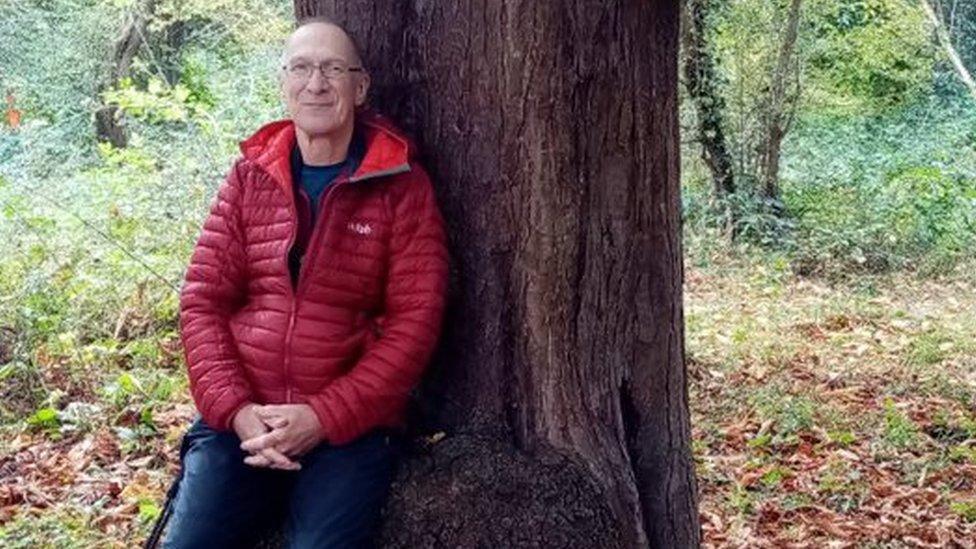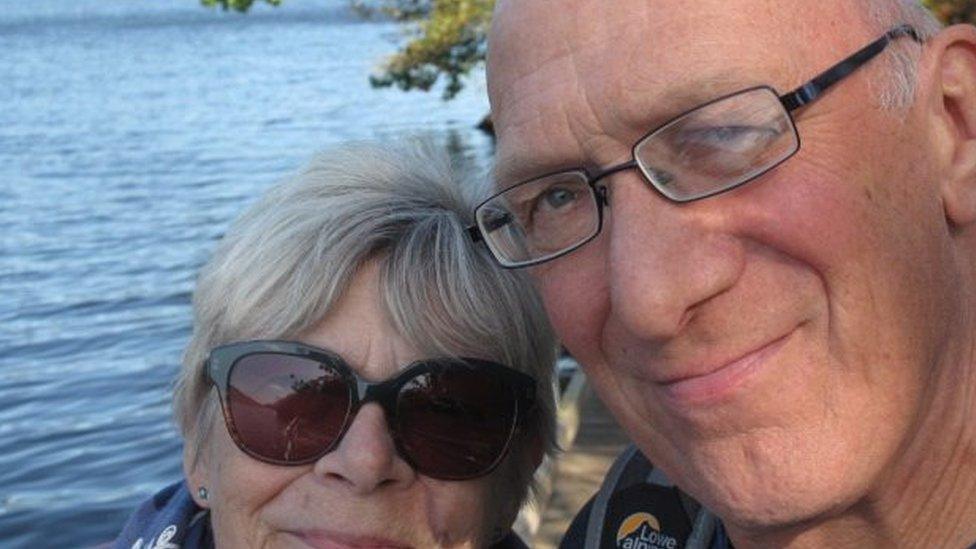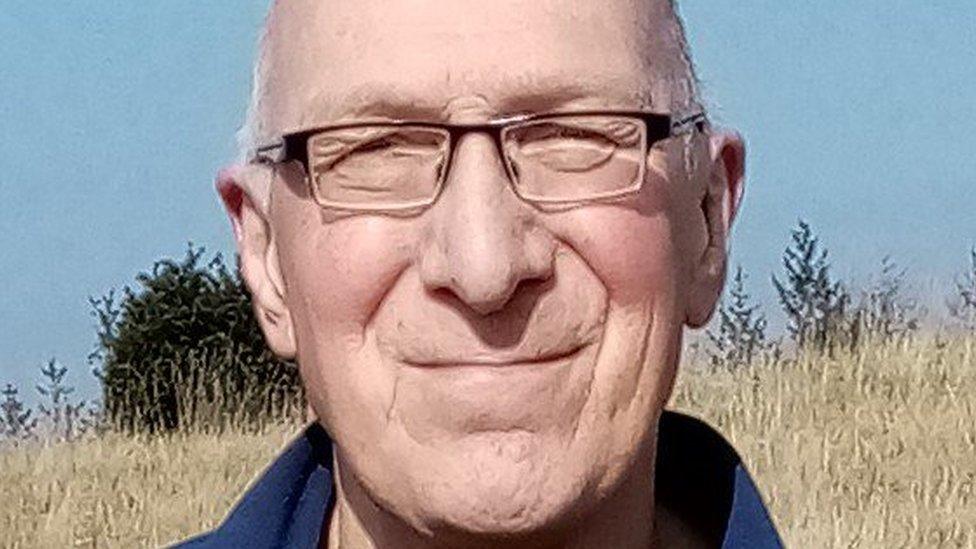Huddersfield man's broken back helped uncover blood cancer diagnosis
- Published

Dave Green said he might never have known he had myeloma without a child falling on him
A former climbing instructor has said breaking his back helped save his life when it revealed he had a form of blood cancer.
Dave Green, 70, from Huddersfield, was running a children's climbing session in 2011 when a participant fell on him.
Some weeks later scans detected his bones had been hollowed out by myeloma, which is incurable but treatable in most cases.
He said he had no symptoms before the accident revealed his bones' weakness.
"I maybe didn't have the energy I once had but I put that down to the fact that I was no longer a young man," the retired instructor from Golcar said.
"I was lucky I was diagnosed before any more damage was done.
"Perhaps everyone in their late 50s should be stress-tested by a child falling on them," he joked.

Dave, pictured with his wife Erica, was diagnosed seven weeks after the accident
According to charity Myeloma UK, the cancer occurs in bone marrow and tends to affect people over 65.
It can cause holes in the bones, broken spines and kills 3,000 people in the UK each year.
It is estimated about 24,000 people in the UK are living with the disease.
The organisation said treatment is aimed at controlling it, relieving the complications and symptoms, and extending and improving patients' quality of life.
Despite being the third most common type of blood cancer, it is especially difficult to detect as symptoms are often linked to general ageing or minor conditions.
The charity said 34% of myeloma patients visit their GP at least three times before getting a diagnosis, yet a simple blood test can pick up signs of the disease.

Dave Green has given up climbing, but has taken up canoeing
Mr Green said: "Fortunately for me, in the long term this fall exposed a weakness in my bones - they had been honeycombed out by the myeloma but I had practically no symptoms until that point."
When he heard the news his first thought was "how long have I got?".
"They said that the median life expectancy was five to eight years and my question was 'How do I get eight rather than five years?'
"I seem to have done that plus some more."
He has since received two stem-cell transplants and signed up to two clinical trials and is now on his fourth round of treatment.
"There have been many ups and down both in terms of response to treatment and the emotional and physical rollercoaster it's caused, but I'm still going strong," he said.

Follow BBC Yorkshire on Facebook, external, Twitter, external and Instagram, external. Send your story ideas to yorkslincs.news@bbc.co.uk, external.